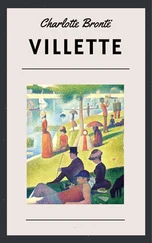He kept staring at Adam while the question floated in the air.
“Yes, sir,” said Adam, not knowing what else to do with it.
“It’s because you know what all the progressive forces are doing now? They’re all busy fighting smoke. Everybody seems to think if the smoke is gone, there’s no more fire.”
Now this comment hung in the air. Adam had no idea what Mr. Quat was talking about. So he said, “Yes, sir.”
“And you wanna know why nobody dares try to extinguish the fire again? That’s what nobody understands. Nobody’s supposed to see the fire anymore. That’s been demonized—pointing straight at it and saying, ‘That…is fire…you’re looking at. Right there.’” He pointed toward the floor with an accusing finger. “That’s not allowed, not even in so-called PC circles in academia. Whichever one of them thought up ‘PC’ was a genius in his own slimy way. It’s because of that clever little smear that it’s now considered…vulgar…to call the fire the holocaust—that’s the word for it, except that holocaust has taken a specific meaning—in Greek it means something completely burned up—anyway, it’s ‘vulgar’ to mention it. You wanna know what PC should mean? ‘Progressive causes’ is what it should mean. You wanna know what it actually means today?”
Mr. Quat’s lips stopped moving, and he stared at Adam…waiting…Adam was baffled. What fire? So he croaked out, “Yes, sir.”
“What it actually means is prison-bound citizens…prison-bound citizens…PC…think about it…We’re being pinned down by snipers and hooligans. You saw the hooligans the other day. They were so brazen, they even put on a paramilitary uniform, the short khaki pants. They’re ready to go after something as mild as Stand Up Straight for Gay Day. How many times does history have to repeat itself? This goes back to 1917 in Russia, where the hooligans lost—that was a miracle!—and 1933 in Germany, where the hooligans won—meaning, of course, those who sent them forth, the forces…the fire…”
Mr. Quat let that one loose in the air like a blimp. Reflexively, Adam said, “Yes, sir,” even though Mr. Quat had not asked him a question. Mr. Quat now stared at Adam intently and cocked his head in a way people do when they are just about to excavate your soul. “Now…you’re probably wondering why I’m telling you all this.”
To put it mildly. All that Adam could make out of it so far was that a wind was rising, and in some vague way it was blowing in his favor. Mr. Quat would have never gone on that way about “progressive” this and “progressive” that if he didn’t think he was talking to a sympathizer. But Adam didn’t dare utter anything more adventurous than his all-purpose standby, “Yes, sir.”
“Okay,” said Mr. Quat, “I’m going to tell you. In the grand sweep of things”—he made a grand sweep with his hand and forearm—“Stand Up Straight for Gay Day is about as soft-core as protests get. You know what I mean? I’ve been involved in protests.”
“Yes, sir.”
“Nevertheless, you were right there in the front line holding a placard. That shows courage in two ways. One is the very fact that you were willing to stand up for an unpopular cause. And…Camille tells me—Camille…” The very thought made Mr. Quat break into a huge grin and close his eyes and lower his head and shake it. He looked at Adam again, still grinning. “That woman is…a pistol! She was born too late, though. If she’d been around in 1968, she would have blown the top off this place!” Grinning grinning grinning he closed his eyes, lowered his head, and shook it some more, apparently having visions of Camille Deng as an acetylene-mouthed Chinese Mother Bloor—Mr. Wallerstein talked about Mother Bloor—battling atop the burning barricades in the streets of Chicago during the war in Vietnam.
Mr. Quat pulled himself together. “Anyway, Camille tells me you’re not gay, but you were one of the students willing to stand right there in front of the platform holding a placard reading I forget what, something something ‘Queer.’ That shows me what we used to call intestinal fortitude. ‘Guts,’ I believe, is the term that has survived.” He who knew the score gave Adam a smile of approval.
“Yes, sir,” said Adam, who had lost all track of what the question, if any, might be. His heart pounded pounded pounded pounded.
Mr. Quat cocked his head in that certain way again. “Now, I take it, you can…uh…shed some light on the Johanssen case. You were his tutor, you said?”
“Yes, sir.”
“Okay…So what can you tell me about it? Where did that paper come from?”
“Yes, sir,” said Adam. “But may I give you some background?”
Mr. Quat granted him another pasha sweep of the arm, as if to say, “Go right ahead.”
“Camille and I,” said Adam, “and Randy Grossman, the student who spoke right before you?—we’re all members of a group…well, actually a cénacle is what we call it—like the cénacle in Balzac’s Lost Illusions?” He lowered his eyes and smiled in an embarrassed fashion, to show that he was aware of the immodesty of the comparison. Now was the time to enter his evidence for the defense. He had worked on it until four o’clock this morning, and he could say it by heart. He told of how hard he and the other Millennial Mutants had worked to take control of the Wave and how, now that they had it, they were determined to print real stories about Dupont, such as the series on the board of trustees. In explaining what “Millennial Mutants” meant, he was careful not to mention their fundamental assumption, which was that to be a mere college teacher was too humble and self-effacing for words. He quickly moved on to the Mutants’ role as the ideological core of progressive causes on the campus, whether it was standing up for gay rights or simply mobilizing students to be active and vote against the Republican Party. He enumerated the many ways they had devoted the Wave to that end. Then he moved to the more personal terrain. He came from a family—and he had already rehearsed how to let it be known that his family was Jewish, by packing his great-grandparents, pogroms in eastern Europe, fear of being forcibly dragooned into military service in Poland, Ellis Island, the Lower East Side, and sweatshops into a single sentence, without losing track of the syntax—he came from a family that had fought for progressive causes for generations. That flicked on, in the very moment he spoke the words, a flashback to his father, Nat Gellin, Mr. Congeniality, maestro of Egan’s, the Jew who could butter up Irishmen better that any other Jew in Boston, but it was only that, a flash, and did not break up the flow of his words. He had also rehearsed how to let it be known that the Gellins, formerly Gellininskys, were Jews without money, as witness the fact that he was the first Gellin in all those generations who ever went to college. Big Nat, the tender of the sons of Erin, he reasoned to himself, had dropped out of B.U. and didn’t count. Furthermore, not even he, Adam, could have come to Dupont had he not been awarded a scholarship and held down two jobs, one delivering pizza at night in a Bitsosushi and the other, as Mr. Quat was aware, tutoring athletes for the Athletic Department. Then he moved to the climax. He had a dream—and now this dream was close to becoming real: a Rhodes scholarship. He omitted the part about the “Bad-Ass Rhodie.” He included the part about “opening doors”—and added a part about how, once inside those doors, he would be in a position to devote his life to advancing progressive causes in a substantial way. He figured now was not the moment to mention his intention of becoming a matrix who originates the great theories and concepts that are then spread by “the intellectuals,” the people with the dealerships, such as college history teachers…if one need edit.
Читать дальше










